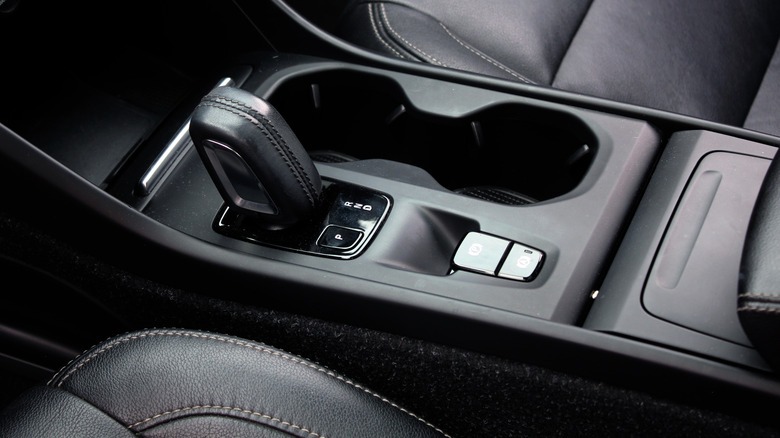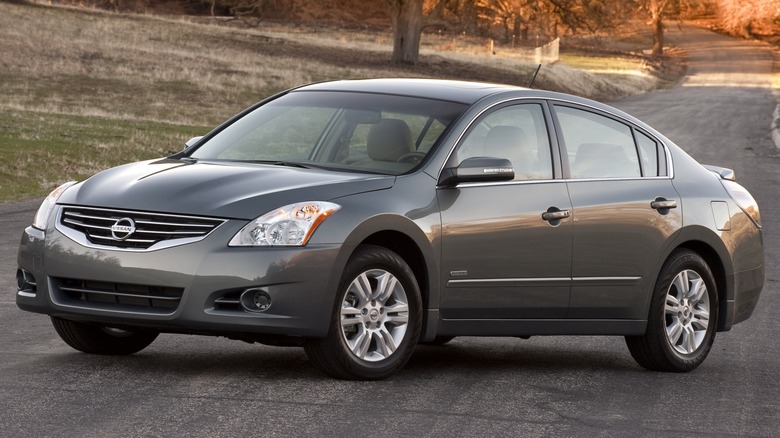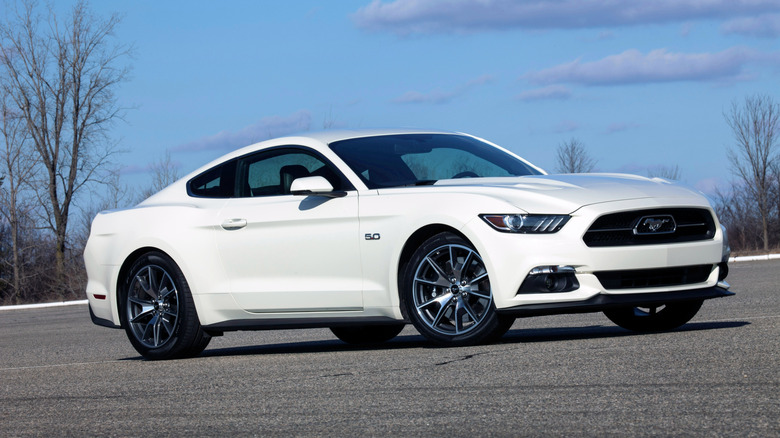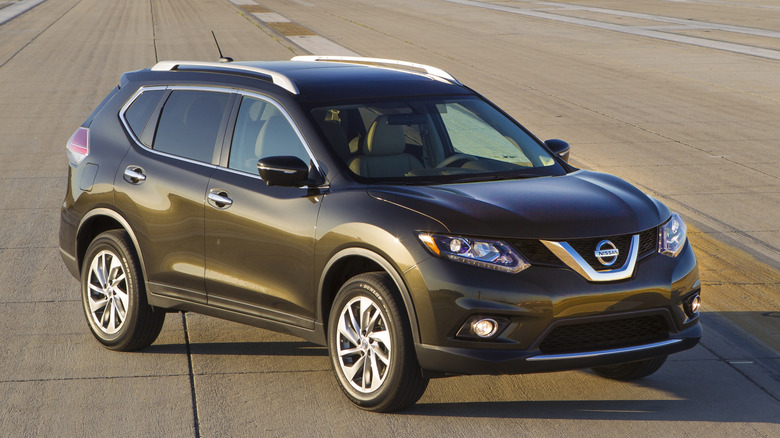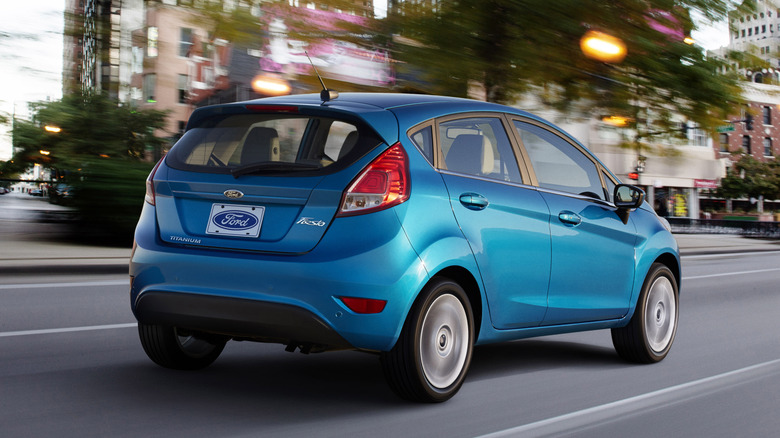6 Cars With Notoriously Bad Transmission Problems
As an integral part of the car's drive train, the transmission is crucial for the proper functioning of the vehicle. Its sole purpose is to transfer the engine power to the driving wheels through the set of gears. Over the years, the original concept has been improved from the basic manual gearbox to modern, precise, efficient, and electronically controlled automatics. You might think that manufacturers have managed to make transmissions super-reliable by now.
However, this is not always the case. Whether it is poor engineering, sub-standard components, or lack of refinement or testing, cars from reputable brands like Ford or BMW have poor transmissions, which has led to lawsuits, recalls, and a declining reputation. The worst thing is that sometimes companies were aware of such problems, but ultimately decided not to address the problem prior to release — hoping that extended warranties and software updates would sort things out. Well, sometimes that doesn't help, which is why these six cars are notorious for having bad transmission problems.
Ford Focus
The Ford Focus is considered fairly dependable, but the 2012-2016 models equipped with the automatic DCT (dual-clutch transmission) are notorious for their quality. The problem was that Ford used a dry-clutch system instead of a wet-clutch system (dipped in hydraulic fluid) like its competitors. This system has resulted in excessive wear of the components, resulting in owners reporting numerous problems like shuddering when accelerating, harsh shifts, falling out of gears, and issues when accelerating.
Ford knew about the problems and released more than 20 internal technical bulletins regarding the DCT transmission in its cars. But this was not the end; Ford even issued recalls and was eventually forced to pay $30 million in a lawsuit settlement. Ford lost a lot of money in recalls and warranty claims, not to mention the bad reputation and low ratings that the Focus received from the press, but Ford never decided to invest in redesigning the complete transmission before the Focus was discontinued altogether.
Nissan Altima
Despite the fact that the Altima is a very popular commuter car, the earlier versions made from 2002-2017 all suffered from problematic CVT transmissions. The CVT (Continuously Variable Transmission) is the type of automatic gearbox that is known for its simplicity and efficiency, and has been used by numerous car brands. However, the Altima wasn't up to the task, with countless problems like slow performance, stuttering between the gears, strange sounds, and more. Some model years even experienced snapping belts and broken pullies, as opposed to the standard transmission gears used in traditional manual/automatic transmissions.
Experts claim that the reason was cost-cutting engineering, sub-standard components, and failure to calculate the wear. All of that meant that Altima's gearbox couldn't endure high mileage, and usually gave up at around 80,000-100,000 miles of use. The current Altima model also uses a CVT, but a much improved, modern version. For now, the 2024/2025 model year is significantly more durable and reliable.
Ford Mustang
The issues with the Ford's MT82 6-speed manual are well known among Mustang fans. This transmission was installed in 2011-2020 model year Mustangs, and was used on the V6, EcoBoost, and GT models. Even though the engineering was straightforward, the materials used (aluminum casting and internal bell housing) were apparently not up to standards. The V6 and EcoBoost models equipped with MT82 didn't usually have problems, but V8-powered Mustangs — especially those with more power than the standard — often experienced complete transmission breakdowns.
If you know anything about the Ford Mustang, you know its owners often modify their cars and drive them in a spirited manner. The MT82 transmission, even though it provided the 6-speed manual engagement, wasn't built well enough for use in a thoroughbred muscle car. Again, Ford was aware of the problems and issued several internal service bulletins over the years. In the end, the MT82 was replaced by the Getrag unit (2021 onwards), which uses a more reliable transmission.
BMW M5 E60
You might notice that the used BMW E60 M5 prices are very tempting, and we cannot blame you for wanting that amazing 507-horsepower V10 land missile. However, before you decide to spend your money on an almost 20-year-old BMW, you have to know why its SMG transmission is considered one of the most notoriously bad transmissions in a car. The SMG (Sequential Manual Gearbox) had problematic performance even when properly working, with stuttering at low speeds, holding on to the gears for long, and losing power without reason.
Higher mileage examples often experience broken synchronizer rings, low hydraulic pressure, leaks, overheating, and even some electrical issues. Even when those cars were new, you could feel something was wrong since they would lose power and start to stutter during standard highway cruises. On the upside, the SMG did shift gears very fast, but depreciated even faster due to well-documented reliability problems.
Nissan Rogue
Some car mechanics even state that the number of transmission problems on the Nissan Rogue exceeds the issues on the Altima. Both cars use the same CVT gearbox, but the Rogue's propensity for issues is worse. This is primarily due to the fact it is a bigger vehicle with more weight, which puts additional stress on components, including the transmission. The most problematic model years are from 2012-2018 when Nissan issued several recalls.
The CVT in the Nissan Rogue is known for stalling, falling out of gear, or delivering poor performance and hesitation when accelerating. In some cases, owners also reported overheating, which can ruin the entire gearbox. Due to a number of moving parts, high speed, and friction, the gearbox internals get hotter in temperature, and the transmission fluid is there to cool them down along with lubrication. However, Nissan dealerships offered software updates and fluid changes, which sometimes helped cure the issues with the gearbox's erratic behavior. If you are looking to buy an older Nissan Rogue, you should be aware.
Ford Fiesta
Knowing the problems with the DCT in the Ford Focus, it is strange that Ford continued to use similar transmissions in the Fiesta. A poor reputation due to a problematic gearbox was one of the reasons why this model was discontinued in the U.S. in 2023. The common symptoms were apparent — poor performance, grinding sounds, overheating, falling out of the gears, and, in some cases, complete failure. Ford responded by extending the warranty to 10 years or 150,000 miles, and although it sounded generous, it didn't help since owners continued to notice problems with the transmission.
The dry-clutch design wasn't very dependable, and Ford knew that over time, it would develop problems. However, problems arose sooner than expected, and Fiesta drivers started noticing transmission issues as early as 50,000 miles. Interestingly, there are a few examples with high mileage and perfectly functioning gearboxes, but those can be considered a curious exception to the rule.
